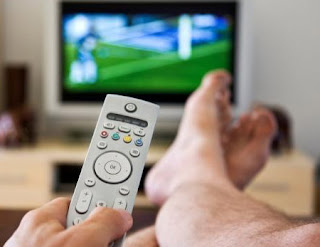
What is surprising, experts point out, is that when you ask loving husbands and wives about the key to their devotion, over and over you'll hear the same things, specific habits that mirror these values. Learning these secrets can make your marriage closer too.
They use terms of endearment
Sure, you may find it cloyingly sweet when you overhear other couples talking like 2-year-olds, but endearments are actually a sign of a healthy rapport.
These feelings of intimacy can also come from using a special tone of voice with each other, sharing silly "inside jokes," or pet-naming your spouse's intimate body parts. The point is to connect with some private message system that's meaningful to you alone, as a couple -- not to the outside world.
When the going gets tough, they don't call Mom or Dad
The first task facing all young couples is separating from their families of origin. This doesn't mean you shouldn't go home for the holidays. But if there's a crisis over whether to have a second child or relocate for a new job, or even if there's good news about a big raise or the results of a medical test, the couple should talk about it together first before dialing Mom.
They stay connected to their parents
This doesn't contradict with the above point. You can talk with your mom every day and still be clear about where your attachment to her ends and your love for your mate begins.
Staying connected to parents, siblings, cousins and the like can be excellent for a marriage because it gives a sense of family continuity. It generates positive feelings, especially when you incorporate your spouse into that family. You're sharing that part of you with each other.
They don't nickel-and-dime about chores
It's no secret that most wives continue to do more in the housekeeping and child-rearing departments than their husbands. Still, when partners become double-entry bookkeepers, adding up every dish washed and every diaper changed, they may be headed for trouble.
Most couples think they should strive for a relationship that's 50-50,but the fact is, they should each give 150 percent. In good relationships, couples give everything they can. They don't nickel-and-dime each other, and they respect that each person gives different things.
They give each other gifts
Couples who are deeply connected often give each other presents or write little notes, says Thomas Moore, Ph.D., best-selling author of Care of the Soul. What they're doing is preserving the rituals, and the magic, of their courtship.
The gift should carry no strings. Sarah sometimes comes home from work to find that her husband has prepared a candlelight dinner. But it's not set up to be a prelude to sex.
They never lose their sense of humor
Humor, as many psychotherapists have observed, is the glue that keeps a couple together. When a couple can no longer laugh together, it's a signal that the soul has gone out of their marriage and they are headed for trouble.
But lighthearted couples never mock each other. They instinctively know what is -- and isn't -- fair game.
They take "for better or for worse" seriously
Contented couples encounter their share of life's miseries -- whether it's the car breaking down, a nasty cold or a missed promotion -- but they help each other get through. You don't, for example, hear them say, "How could you let that happen?" when a spouse loses a job. Couples who do well together tend not to do anything that increases their partner's suffering, like become resentful or criticize. In good marriages, people feel safe from the outside world. Each spouse has the feeling, I can count on you, our world is all right.

 There’s no such thing as a relationship without challenges. However, some stumbling blocks are merely garden-variety annoyances, while others are bona fide deal-breakers. Here is a Guide to Knowing if Your Relationship Can — and Should — Be Saved.
There’s no such thing as a relationship without challenges. However, some stumbling blocks are merely garden-variety annoyances, while others are bona fide deal-breakers. Here is a Guide to Knowing if Your Relationship Can — and Should — Be Saved.  When you were a kid and had a sore throat, your mom likely made you gargle warm water with salt in it...and she was definitely on to something. According to Douglas Hoffman MD, PhD, author of the website The Medical Consumer's Advocate, a sore throat is an inflammatory response of the infected tissues, and the salt helps draw out the excess fluid to temporarily decrease swelling and the pain it causes.
When you were a kid and had a sore throat, your mom likely made you gargle warm water with salt in it...and she was definitely on to something. According to Douglas Hoffman MD, PhD, author of the website The Medical Consumer's Advocate, a sore throat is an inflammatory response of the infected tissues, and the salt helps draw out the excess fluid to temporarily decrease swelling and the pain it causes.  Clutter accumulates so quietly, so insidiously, we may not even notice until it's gotten out of control. Suddenly, we're surrounded by so much debris from our past -from dried-up tubes of Glue to old grudges -that it's a wonder we can even get out of bed in the morning.
Clutter accumulates so quietly, so insidiously, we may not even notice until it's gotten out of control. Suddenly, we're surrounded by so much debris from our past -from dried-up tubes of Glue to old grudges -that it's a wonder we can even get out of bed in the morning. There are lots of reasons we struggle with "no." Some feel bound by obligation or by fear of hurting someone's feelings. Others believe they really can do it all (and hate to pass up the opportunity to try). But think about it: Almost every misplaced yes is really a no to you.
There are lots of reasons we struggle with "no." Some feel bound by obligation or by fear of hurting someone's feelings. Others believe they really can do it all (and hate to pass up the opportunity to try). But think about it: Almost every misplaced yes is really a no to you. Squatting menacingly in the corner of your favorite restaurant, movie theater, supermarket or bowling alley, the claw machine is a harsh mistress. There's something unmistakably hostile about its steely, three- or four-fingered grip, and something immeasurably frustrating about the feeling of horror and loss you get as your prize slips from your tenuous grasp at the very last second.
Squatting menacingly in the corner of your favorite restaurant, movie theater, supermarket or bowling alley, the claw machine is a harsh mistress. There's something unmistakably hostile about its steely, three- or four-fingered grip, and something immeasurably frustrating about the feeling of horror and loss you get as your prize slips from your tenuous grasp at the very last second. Here are some tips to help reset your internal clock and survive your first couple of days back at work or school:
Here are some tips to help reset your internal clock and survive your first couple of days back at work or school: What is surprising, experts point out, is that when you ask loving husbands and wives about the key to their devotion, over and over you'll hear the same things, specific habits that mirror these values. Learning these secrets can make your marriage closer too.
What is surprising, experts point out, is that when you ask loving husbands and wives about the key to their devotion, over and over you'll hear the same things, specific habits that mirror these values. Learning these secrets can make your marriage closer too. A study at the University of Virginia showed that holding a spouse’s hand can diminish stress set off by a mild electric shock. A total of 16 couples took part; first the wives received the shocks while their brains were monitored via functional magnetic resonance imaging (fMRI).
A study at the University of Virginia showed that holding a spouse’s hand can diminish stress set off by a mild electric shock. A total of 16 couples took part; first the wives received the shocks while their brains were monitored via functional magnetic resonance imaging (fMRI). Cats have internal GPS systems.
Cats have internal GPS systems. You love taking a midday break from work and finding out what your pals are up to, but could everyone else's status updates be stressing you out? Maybe, says expert. Social networking, like any relationship, can have an impact on your emotions, adding that online news bites can sometimes, inadvertently, make others feel inadequate.
You love taking a midday break from work and finding out what your pals are up to, but could everyone else's status updates be stressing you out? Maybe, says expert. Social networking, like any relationship, can have an impact on your emotions, adding that online news bites can sometimes, inadvertently, make others feel inadequate. When that pheromone-crazy feeling of falling in love passes and happy couples no longer spend all day in bed, they look outward. They start businesses, refinish the attic or take up cooking together.
When that pheromone-crazy feeling of falling in love passes and happy couples no longer spend all day in bed, they look outward. They start businesses, refinish the attic or take up cooking together. A couple of cups of joe may perk you up in more ways than you think. Coffee gets a bad rap because of the caffeine, but it may actually help regulate your mood. A recent study published in Archives of Internal Medicine showed that women who drank two to three cups of coffee daily had a 15% lower risk of depression. Photo by iStock
A couple of cups of joe may perk you up in more ways than you think. Coffee gets a bad rap because of the caffeine, but it may actually help regulate your mood. A recent study published in Archives of Internal Medicine showed that women who drank two to three cups of coffee daily had a 15% lower risk of depression. Photo by iStock Help is here. Here're some tips on how to overcome this common problem. We’ve rounded up advice from experts who teach people how to stay calm in nerve-wracking situations. Try their tips below for putting your best dating foot forward.
Help is here. Here're some tips on how to overcome this common problem. We’ve rounded up advice from experts who teach people how to stay calm in nerve-wracking situations. Try their tips below for putting your best dating foot forward. There's fighting and then there's
There's fighting and then there's  Most water bottles are made of a plastic called polyethylene terepthalate, or PET. There are two problems with PET bottles.
Most water bottles are made of a plastic called polyethylene terepthalate, or PET. There are two problems with PET bottles. The number one way hackers get into protected systems isn't through a fancy technical exploit. It's by guessing the password. That's not too hard when the most common password used on business systems is "Password1."
The number one way hackers get into protected systems isn't through a fancy technical exploit. It's by guessing the password. That's not too hard when the most common password used on business systems is "Password1." Chalk this one up to testosterone, the “male” hormone that advises the brain, too. “In utero, the male fetal brain ‘marinates’ in testosterone, which makes his brain’s area for sexual pursuit grow to be two and a half times larger than in a female brain,” Expert says.
Chalk this one up to testosterone, the “male” hormone that advises the brain, too. “In utero, the male fetal brain ‘marinates’ in testosterone, which makes his brain’s area for sexual pursuit grow to be two and a half times larger than in a female brain,” Expert says. We're told to eat nine servings of fruits and vegetables, but new rule says to fill half your plate with produce.
We're told to eat nine servings of fruits and vegetables, but new rule says to fill half your plate with produce. The inside story: Remember that old saying "the devil finds work for idle hands"? Spending a lazy day on the sofa may not seem evil to you, but your body finds plenty of ways to make trouble with the sugar, or glucose idling in your bloodstream. Taking a walk or getting any other type of physical activity forces muscle cells to soak up glucose, which it uses to produce energy. On a day when you don't give your muscles enough work to do, glucose goes unused. Over time, a sit-around lifestyle encourages two major problems:
The inside story: Remember that old saying "the devil finds work for idle hands"? Spending a lazy day on the sofa may not seem evil to you, but your body finds plenty of ways to make trouble with the sugar, or glucose idling in your bloodstream. Taking a walk or getting any other type of physical activity forces muscle cells to soak up glucose, which it uses to produce energy. On a day when you don't give your muscles enough work to do, glucose goes unused. Over time, a sit-around lifestyle encourages two major problems: Do you know that everyday items have secret curing powers too? Below are two items that have the power to cure, and get medical explanations behind the home remedies:
Do you know that everyday items have secret curing powers too? Below are two items that have the power to cure, and get medical explanations behind the home remedies: It's enough to make any PR agent wince. The co-founder of Twitter has urged its 500million users to get off the micro-blogging website and do something else instead.
It's enough to make any PR agent wince. The co-founder of Twitter has urged its 500million users to get off the micro-blogging website and do something else instead. At a restaurant, your friends suggest splitting the check evenly, but your meal costs less. If these are people you don’t meet with often, divvying up the check evenly is probably the best way to handle it.
At a restaurant, your friends suggest splitting the check evenly, but your meal costs less. If these are people you don’t meet with often, divvying up the check evenly is probably the best way to handle it. Spend an hour at the playground on a Saturday and you’ll have all the proof you need that males and females are just wired differently when it comes to physical activity. “From the time boys are young, they exhibit much more rough-and-tumble play than little girls do,” Dr. Brizendine explains.
Spend an hour at the playground on a Saturday and you’ll have all the proof you need that males and females are just wired differently when it comes to physical activity. “From the time boys are young, they exhibit much more rough-and-tumble play than little girls do,” Dr. Brizendine explains. Love actually can make us healthier, so much so that if you could bottle it, you would have an incredible wonder drug, a Nobel Prize, the thanks of a grateful population and more money than Bill Gates. If a growing body of research is to be believed, love can lengthen your life, ward off stress, boost your immune system, lower your blood pressure, protect you from colds and flu, blunt your response to pain, hasten wound healing, and lower your risk of dementia in old age.
Love actually can make us healthier, so much so that if you could bottle it, you would have an incredible wonder drug, a Nobel Prize, the thanks of a grateful population and more money than Bill Gates. If a growing body of research is to be believed, love can lengthen your life, ward off stress, boost your immune system, lower your blood pressure, protect you from colds and flu, blunt your response to pain, hasten wound healing, and lower your risk of dementia in old age. Vigorous aerobic exercise such as fast walking or jogging is great for blasting belly fat, but a total-body weight-training routine boosts results and firms your midsection even more.
Vigorous aerobic exercise such as fast walking or jogging is great for blasting belly fat, but a total-body weight-training routine boosts results and firms your midsection even more. A new browser add-on alerts Facebook users the instant that someone on their friends list 'unfriends' them - cutting off their link on the social network. It also alerts users when someone rejects or ignores a friend request.
A new browser add-on alerts Facebook users the instant that someone on their friends list 'unfriends' them - cutting off their link on the social network. It also alerts users when someone rejects or ignores a friend request. Could a phone be smart enough to work out when we’re suffering from depression?
Could a phone be smart enough to work out when we’re suffering from depression? They unveiled their line of jeans tailored for curvaceous figures last week. But just in case shots of the girls sporting the denim along with tailored white shirts wasn't enough to generate buzz about the range, the Kardashian clan took things one step further and decided to pose topless for their campaign.
They unveiled their line of jeans tailored for curvaceous figures last week. But just in case shots of the girls sporting the denim along with tailored white shirts wasn't enough to generate buzz about the range, the Kardashian clan took things one step further and decided to pose topless for their campaign. It sounds like the stuff of science fiction dreams - or nightmares. Scientists believe they have found a way to read our minds, using a computer program that can decode brain activity in our brains and put it into words.
It sounds like the stuff of science fiction dreams - or nightmares. Scientists believe they have found a way to read our minds, using a computer program that can decode brain activity in our brains and put it into words. Astronomers have found a planet which is one of the best candidates for life ever found by telescopes on Earth. The planet is rocky, like ours, and orbits its sun within the 'habitable zone', where temperatures are just right for liquid water to exist on the planet's surface.
Astronomers have found a planet which is one of the best candidates for life ever found by telescopes on Earth. The planet is rocky, like ours, and orbits its sun within the 'habitable zone', where temperatures are just right for liquid water to exist on the planet's surface. Tiny urban car can fold in half and drive sideways, making it ideal for congested cities. European officials have taken the covers off a new electric car that folds in half to fit in to tight parking spots.
Tiny urban car can fold in half and drive sideways, making it ideal for congested cities. European officials have taken the covers off a new electric car that folds in half to fit in to tight parking spots. What's your New Year's resolution for 2012? To exercise more? To be more productive? We bet "a more honest and open relationship" isn't on many of your lists. That's because tons of people put their relationships on autopilot, hoping the kinks will just work themselves out - and then they argue each and every day, and end up resenting each other. The best way to have a happy relationship is to keep working on it, so even if you're not currently in a relationship rut, follow these 12 tips from our staff and you'll keep being happy.
What's your New Year's resolution for 2012? To exercise more? To be more productive? We bet "a more honest and open relationship" isn't on many of your lists. That's because tons of people put their relationships on autopilot, hoping the kinks will just work themselves out - and then they argue each and every day, and end up resenting each other. The best way to have a happy relationship is to keep working on it, so even if you're not currently in a relationship rut, follow these 12 tips from our staff and you'll keep being happy. Being sure to sip water throughout a stressful day can soothe stress-induced symptoms as diverse as headaches, tense muscles, fuzzy thinking, a pounding heart, and low energy. That's because stress taxes all your basic body systems and when you're dehydrated, the effects are magnified.
Being sure to sip water throughout a stressful day can soothe stress-induced symptoms as diverse as headaches, tense muscles, fuzzy thinking, a pounding heart, and low energy. That's because stress taxes all your basic body systems and when you're dehydrated, the effects are magnified. When you wake up after a long night's rest, your body has gone as much as 12 hours without a meal. That means one thing: You need fuel. More precisely, it means there's probably a shortage of glucose in your bloodstream. If you don't eat breakfast and head out the door with low blood sugar, one organ in particular won't be operating at full speed: your brain, which requires a steady flow of blood sugar to run effectively. And even a mild case of low blood sugar can leave you queasy and jittery. You may also feel less sharp-witted. Studies of school children have shown repeatedly that kids who eat breakfast have better memories and learn more than their classmates who don't.
When you wake up after a long night's rest, your body has gone as much as 12 hours without a meal. That means one thing: You need fuel. More precisely, it means there's probably a shortage of glucose in your bloodstream. If you don't eat breakfast and head out the door with low blood sugar, one organ in particular won't be operating at full speed: your brain, which requires a steady flow of blood sugar to run effectively. And even a mild case of low blood sugar can leave you queasy and jittery. You may also feel less sharp-witted. Studies of school children have shown repeatedly that kids who eat breakfast have better memories and learn more than their classmates who don't. There are two types of polyunsaturated fats that are essential to your health and must come from your diet: omega-6 and omega-3.
There are two types of polyunsaturated fats that are essential to your health and must come from your diet: omega-6 and omega-3. No one knows for sure why sleep is necessary, but there's no doubt that getting too little throws a wrench into your body's works. For example, studies show that a sleep debt lowers levels of the hormone leptin, which helps keep your appetite under control. Implication: Sleep too little, and there's a good chance you'll be soon overeating. Sleep deprivation also boosts levels of stress hormones, which prompt your body to send more glucose into your bloodstream. Too little sleep also makes your body less sensitive to insulin.
No one knows for sure why sleep is necessary, but there's no doubt that getting too little throws a wrench into your body's works. For example, studies show that a sleep debt lowers levels of the hormone leptin, which helps keep your appetite under control. Implication: Sleep too little, and there's a good chance you'll be soon overeating. Sleep deprivation also boosts levels of stress hormones, which prompt your body to send more glucose into your bloodstream. Too little sleep also makes your body less sensitive to insulin. There's nothing wrong with getting angry - it's perfectly natural and healthy to get ticked off now and then. Staying angry is another matter altogether: It's terrible for you. Apart from wrecking your mood and alienating others, fuming all day can make it much harder to manage diabetes. Anger is a form of emotional stress, which causes your body to release adrenaline and other related hormones. One effect of these "stress" hormones is to raise blood sugar. Also, stress may make you indulge in bad habits, such as eating junk food, which can make matters worse.
There's nothing wrong with getting angry - it's perfectly natural and healthy to get ticked off now and then. Staying angry is another matter altogether: It's terrible for you. Apart from wrecking your mood and alienating others, fuming all day can make it much harder to manage diabetes. Anger is a form of emotional stress, which causes your body to release adrenaline and other related hormones. One effect of these "stress" hormones is to raise blood sugar. Also, stress may make you indulge in bad habits, such as eating junk food, which can make matters worse. There are many sweeteners products nowadays, according to the most recent study conducted by reliable resource, here are the 4 top best guys in sweeteners products:
There are many sweeteners products nowadays, according to the most recent study conducted by reliable resource, here are the 4 top best guys in sweeteners products: A child protection unit has called on Twitter to help tackle online child abuse by working harder to report suspicious activity.
A child protection unit has called on Twitter to help tackle online child abuse by working harder to report suspicious activity. Popular Apple-watching website iLounge claims to have had a first hands-on with iPad 3, behind the scenes at CES. The claim isn't too outlandish: iLounge broke a story about iPad 2 at CES last year, which turned out to be authentic.
Popular Apple-watching website iLounge claims to have had a first hands-on with iPad 3, behind the scenes at CES. The claim isn't too outlandish: iLounge broke a story about iPad 2 at CES last year, which turned out to be authentic. It’s well-documented that vegetarians are healthier than the general population. People who do not eat meat, fowl, or fish have a lower risk of heart disease, lower cholesterol, less incidence of type 2 diabetes, lower rate of hypertension, and lower overall cancer rates.
It’s well-documented that vegetarians are healthier than the general population. People who do not eat meat, fowl, or fish have a lower risk of heart disease, lower cholesterol, less incidence of type 2 diabetes, lower rate of hypertension, and lower overall cancer rates. Here are some foods that help you sleep: Almonds, oats, pistachios, pumpkin seeds and wheat are all good sources of tryptophan, an amino acid that helps the body produce serotonin and melatonin.
Here are some foods that help you sleep: Almonds, oats, pistachios, pumpkin seeds and wheat are all good sources of tryptophan, an amino acid that helps the body produce serotonin and melatonin. These are symptoms identified as showing your tech habits might be unhealthy:
These are symptoms identified as showing your tech habits might be unhealthy: How much sugar can you eat without compromising your health? The American Heart Association (AHA) recommends women limit their consumption to less than 6 teaspoons per day. The AHA wants men to stick to less then 9 teaspoons, and for kids 4 to 8 years old, only 3 teaspoons of sugar are allowed.
How much sugar can you eat without compromising your health? The American Heart Association (AHA) recommends women limit their consumption to less than 6 teaspoons per day. The AHA wants men to stick to less then 9 teaspoons, and for kids 4 to 8 years old, only 3 teaspoons of sugar are allowed. Rather than tossing all of those trees immediately into the recycle bin, you can give them a brand new life, here are several tips:
Rather than tossing all of those trees immediately into the recycle bin, you can give them a brand new life, here are several tips: It's easy to get distracted or overwhelmed at work. But one of the secrets of highly productive people is that they learn when and how to say "no." For starters, say "no" to whiners, complainers and distracting people.
It's easy to get distracted or overwhelmed at work. But one of the secrets of highly productive people is that they learn when and how to say "no." For starters, say "no" to whiners, complainers and distracting people. Electric E-Bugster concept chops the Beetle’s top and replaces its petrol engine with plug-in drivetrain. Leaked images and details of a funky new version of the Volkswagen Beetle that runs purely on electricity have been revealed online.
Electric E-Bugster concept chops the Beetle’s top and replaces its petrol engine with plug-in drivetrain. Leaked images and details of a funky new version of the Volkswagen Beetle that runs purely on electricity have been revealed online. The interior, designed by Marc Newson includes LCD touch panels, leather seating, plants, sheepskin-covered full-length beds and more than 1,000 videos to choose from.
The interior, designed by Marc Newson includes LCD touch panels, leather seating, plants, sheepskin-covered full-length beds and more than 1,000 videos to choose from. Emails are key to communication in the office. Yet, as a rule, they are badly written. So by consistently sending sharp, well-composed electronic messages, you will make yourself stand out from the crowd, and these are 10 tips of how you do it:
Emails are key to communication in the office. Yet, as a rule, they are badly written. So by consistently sending sharp, well-composed electronic messages, you will make yourself stand out from the crowd, and these are 10 tips of how you do it:




